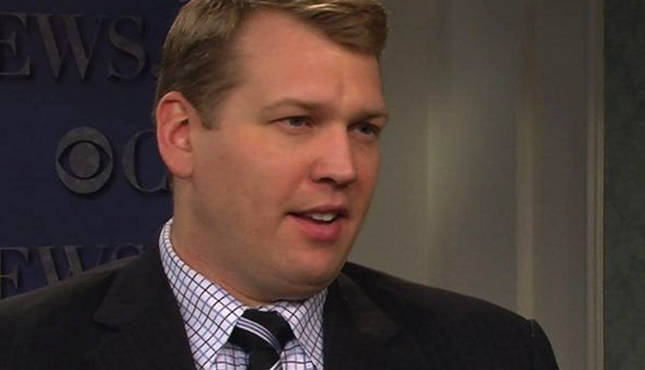wrestling / News
Chris Nowinski Talks About the End of His WWE Career, Concussion Research & More
 Image Credit: CBS News
Image Credit: CBS News
– Chris Nowinski did a TED Talk talking about his work in concussion and CTE research. Video is below, along with some highlights via WZ:
On his WWE career ending and moving into concussion research: “Sure you remember me from Monday Night Raw in 2002 and 2003, and I had a blast playing what people affectionately like to call Chris Harvard, the Ivy League snob. It was perfect for me. But unfortunately, I got kicked in the head by my colleague Bubba Ray Dudley, and I suffered a severe concussion. And it led to what became permanent post concussion symptoms:constant headaches, inability to sleep, depression, feeling in a fog. And in that first year, I tried to figure out how could I make this pain go away. And I wasn’t getting the answers I needed from doctors, and so I started digging into the medical literature. And I found there’s this whole story about concussions that we weren’t really being told. So I decided to write a book about it, called “Head Games: Football’s Concussion Crisis” that came out in 2006. But in that process, I learned it’s not really just about concussions. I learned about a disease called chronic traumatic encephalopathy or CTE. What we used to call punch-drunk, because we only knew about it from boxers.We knew that getting hit in the head too many times with boxers would cause their brain to essentially start to rot, to degenerate. And they’d have symptoms like memory problems and problems with cognition, depression, impulse control issues, aggression. So basically, I got …I got injured at the right time, in which the first two NFL players were studied for this disease.And it turned out they both had it. The first was Mike Webster, 50 years old, already had dementia. The second, Terry Long, 45 years old when he took his life. The medical examiner in Pittsburgh decided to look at their brains and found this disease. I wrote a chapter about it, and I thought people would make a big deal out of it.But shockingly, even when the first two cases came in positive, there was never a national news story about this, what’s going on in football with these cases of CTE.”
On his Concussion Legacy Foundation’s success: “But we’ve been remarkably successful — over 2,500 athletes have signed up. They get a brain-donation card they keep in their wallet. This is mine, I was obviously first, it says 01. And I will donate my brain to this. We’ve also been lucky to have people like Brandi Chastain, the women’s soccer icon,NASCAR’s Dale Earnhardt Jr. Just two weeks ago, Hall-of-Famer Nick Buoniconti who had been diagnosed with dementia, signed up to pledge his brain. So it’s been wonderful, and the great thing about it is that it has worked in changing how we’re able to get brains. So now, instead of me having to call, more families call us. And our phones ring off the hook. And so I can now focus on taking this information, figuring out how do we work towards a cure, how do we work towards prevention, and so my life has gotten a lot easier. This is just some of the headlines that we’ve able to get over the years from athletes pledging their brain. The problem has been what we learned. So when we started this, only 45 cases existed in the world of this disease that had been studied in brain banks. Since then, we have acquired 500 brains and found over 300 of them had CTE. To put that in perspective, the rest of the world has not studied 100 brains since we started this. What we’ve seen though is very frightening. So some of you might have seen the headline in July in the “New York Times.” And a recent study we published, that of the first 111 NFL players we looked at 110 were positive for this disease. Of the first 53 college football players we looked at, 48 had this disease. That’s something that’s a very big concern to me. And so now, I’m very much focused on what can we do to actually treat this disease? We still can’t diagnose CTE in living people, we have no treatments that are going to be coming out of the pharmaceutical industry in the next five years. This is a long, long fight. But our Concussion Legacy Foundation is here to not only facilitate this work, and that’s the long game, but the short game is, hey, we can prevent this.”
More Trending Stories
- Note On Possible WWE Storyline & Faction For The Creed Brothers (POSSIBLE SPOILERS)
- Tony Khan Weighs In On Warning From Oklahoma Athletic Commission Over Nyla Rose Match
- Backstage Update on WWE’s Plans for WrestleMania 41, Possible Move to March or May
- Jim Ross Recalls Dustin Rhodes Being Fired From WCW For Not Following No-Blood Policy







